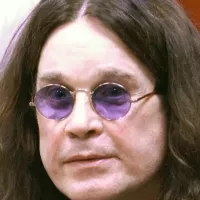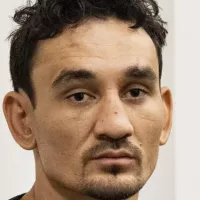Black Sabbath, formed in Birmingham in 1968, is an English rock band consisting of Tony Iommi, Bill Ward, Geezer Butler, and Ozzy Osbourne. Renamed in 1969, they are recognized for occult themes and horror-inspired lyrics, contributing significantly to the evolution of heavy metal. Their initial albums, including "Black Sabbath," "Paranoid," and "Master of Reality," achieved commercial success and are considered foundational in the genre. Later albums, such as "Vol. 4" and "Sabbath Bloody Sabbath," showed experimentation with progressive styles. The band's pioneering work has had a lasting impact on heavy metal music.
1963: Release of Black Sabbath Film
In 1963, the Italian horror film "Black Sabbath", starring Boris Karloff and directed by Mario Bava, was released.
1965: Iommi's accident
In 1965, guitarist Tony Iommi suffered an accident while working in a sheet metal factory, losing the tips of two fingers on his right hand.
1968: Formation of the band
In 1968, Tony Iommi, Bill Ward, Geezer Butler and Ozzy Osbourne formed a rock band in Birmingham, England.
November 1969: Signing with Philips Records
In November 1969, Black Sabbath signed with Philips Records.
November 1969: Recording Debut Album
In November 1969, Black Sabbath spent two days recording their debut album with producer Rodger Bain, recording live with Ozzy singing in a separate booth.
November 1969: Radio Show Recording
On 11 November 1969, Black Sabbath recorded a four-song session for John Peel's Top Gear radio show. The songs were "Black Sabbath", "N.I.B.", "Behind the Wall of Sleep" and "Sleeping Village".
1969: Name Change to Black Sabbath
In 1969, the band adopted the name Black Sabbath, distinguishing themselves with occult themes, horror-inspired lyrics, and down-tuned guitars.
January 1970: Release of "Evil Woman" Single
On 9 January 1970, Black Sabbath released their first single, "Evil Woman", a cover of a song by the band Crow, through Philips subsidiary Fontana Records.
February 1970: Release of Debut Album "Black Sabbath"
In February 1970, Black Sabbath released their debut album, "Black Sabbath", which reached number eight in the UK Albums Chart.
June 1970: Return to the Studio
In June 1970, just four months after releasing their debut album, Black Sabbath returned to the studio to record their second album.
September 1970: Release of "Paranoid" Single
In September 1970, Black Sabbath released "Paranoid" as a single, which reached number four on the UK Singles Chart.
October 1970: Release of "Paranoid" Album in the UK
In October 1970, Black Sabbath released the album "Paranoid" in the UK, where it reached number one on the UK Albums Chart.
1970: Release of Paranoid album
In 1970 Black Sabbath released Paranoid album which Rolling Stone magazine said "changed music forever", and called the band "the Beatles of heavy metal".
1970: Release of "Black Sabbath" and "Paranoid"
In 1970, Black Sabbath released their first two commercially successful albums, "Black Sabbath" and "Paranoid", which are now considered pioneering albums in heavy metal music.
January 1971: U.S. Release of Paranoid
In January 1971, the album "Paranoid" was released in the U.S.
March 1971: Paranoid Reaches No. 12 in the U.S.
In March 1971, "Paranoid" reached No. 12 in the U.S. charts.
April 1971: Production completed for Master of Reality
In April 1971, Black Sabbath completed the production of their album Master of Reality.
1971: Black Sabbath began to feature tuned-down guitars
Beginning with their third album, Master of Reality, in 1971, Black Sabbath began to feature tuned-down guitars to better grip the strings with his prosthesis
1971: Release of "Master of Reality"
In 1971, Black Sabbath released their third commercially successful album, "Master of Reality", which is now considered a pioneering album in heavy metal music.
June 1972: Black Sabbath Begins Work on New Album in Los Angeles
In June 1972, Black Sabbath reconvened in Los Angeles at the Record Plant to start working on their next album, experimenting with new musical textures. Recording was plagued with problems, due to substance abuse issues, almost leading to Ward's dismissal.
1972: Exploration of experimental and progressive styles.
In 1972, Black Sabbath's "Vol. 4" saw the band exploring more experimental and progressive styles.
1972: Black Sabbath Takes a Break After Master of Reality Tour
In 1972, following the Master of Reality world tour, Black Sabbath took their first break in three years due to fatigue from constant touring and recording.
November 1973: Positive Reviews for Sabbath Bloody Sabbath
In November 1973, Black Sabbath began to receive positive reviews in the mainstream press after the release of Sabbath Bloody Sabbath, with Gordon Fletcher of Rolling Stone calling the album "an extraordinarily gripping affair".
1973: Release of "Sabbath Bloody Sabbath"
In 1973, Black Sabbath released the album "Sabbath Bloody Sabbath", exploring more experimental and progressive styles.
1973: Sabbath Bloody Sabbath Compositional Similarities
In 1973, Black Sabbath's album 'Sabbath Bloody Sabbath' had compositional similarities to the progressive rock genre.
1973: Extensive Tour of the U.S., Australia, New Zealand, and Europe
In 1973, after an extensive tour of the U.S., Black Sabbath traveled to Australia and New Zealand for the first time, followed by a tour in mainland Europe.
1973: Difficulties Writing New Album in Los Angeles
In the summer of 1973, Black Sabbath returned to Los Angeles to begin work on their next release. Due to substance issues and fatigue, they struggled to write any songs and were unable to complete anything.
April 1974: Black Sabbath Performs at California Jam Festival
On April 6, 1974, Black Sabbath performed at the California Jam festival in Ontario, California, attracting over 200,000 fans. Portions of the show were telecast on ABC Television, exposing the band to a wider American audience.
July 1975: Release of Sabotage
In July 1975, Black Sabbath released their album Sabotage, produced by Black Sabbath and Mike Butcher. Initial reviews were favorable.
November 1975: Tour Cut Short Due to Osbourne's Accident
In November 1975, Black Sabbath's tour in support of Sabotage with openers Kiss was cut short due to a motorcycle accident in which Osbourne ruptured a muscle in his back.
December 1975: Release of Greatest Hits Album
In December 1975, the band's record companies released a greatest hits album titled We Sold Our Soul for Rock 'n' Roll without input from the band.
1975: Release of "Sabotage"
In 1975, Black Sabbath released the album "Sabotage", which saw the band explore more experimental and progressive styles.
October 1976: Release of Technical Ecstasy
On October 22, 1976, Black Sabbath released Technical Ecstasy to mixed reviews. By the time the album was completed, Osbourne was admitted to Stafford County Asylum in Britain.
November 1976: Touring in Support of Technical Ecstasy Begins
In November 1976, Black Sabbath began touring in support of Technical Ecstasy, with openers Boston and Ted Nugent in the U.S.
1976: Release of "Technical Ecstasy"
In 1976, Black Sabbath released the album "Technical Ecstasy", exploring more experimental and progressive styles.
1976: We Sold Our Soul for Rock 'n' Roll Charts
Throughout 1976, the album We Sold Our Soul for Rock 'n' Roll charted, eventually selling two million copies in the U.S.
1977: Osbourne Quits and Walker Joins Black Sabbath
In late 1977, Ozzy Osbourne abruptly quit Black Sabbath. Iommi then called vocalist Dave Walker to join the band.
January 1978: Osbourne Rejoins Black Sabbath
In January 1978, after initially setting out to form a solo project, Osbourne had a change of heart and rejoined Black Sabbath, making it difficult to incorporate material written with Dave Walker.
January 1978: Walker's Only Live Performance with Black Sabbath
On January 8, 1978, Dave Walker made his only live performance with Black Sabbath, singing an early version of the song "Junior's Eyes" on the BBC Television programme Look! Hear!
May 1978: Never Say Die! Tour Begins with Van Halen
In May 1978, Black Sabbath began touring in support of Never Say Die! with openers Van Halen. Reviewers noted a contrast between Black Sabbath's performance and Van Halen's energetic performance.
June 1978: Filming at Hammersmith Odeon
In June 1978, Black Sabbath filmed a performance at the Hammersmith Odeon, which was later released on DVD as Never Say Die.
September 1978: Release of Never Say Die!
On September 29, 1978, Black Sabbath released their album Never Say Die!. Press response was unfavourable.
1978: Release of "Never Say Die!"
In 1978, Black Sabbath released the album "Never Say Die!", which saw the band explore more experimental and progressive styles.
April 1979: Ozzy Osbourne Fired
In April 1979, due to increasing frustrations with Ozzy Osbourne's lack of input and issues with substance abuse, Tony Iommi made the decision to fire Osbourne from Black Sabbath. Bill Ward, who was close to Osbourne, was chosen to break the news to him on April 27, 1979.
1979: Ozzy Osbourne's Firing
In 1979, Ozzy Osbourne was fired from Black Sabbath and was replaced by Ronnie James Dio.
July 1980: Black Sabbath Performs at Los Angeles Memorial Coliseum
On July 26, 1980, Black Sabbath played to 75,000 fans at a sold-out Los Angeles Memorial Coliseum alongside Journey, Cheap Trick, and Molly Hatchet. The next day, the band appeared at the 1980 Day on the Green at Oakland Coliseum.
August 1980: Bill Ward Quits Black Sabbath
On August 18, 1980, following a show in Bloomington, Minnesota, Bill Ward quit Black Sabbath due to his inability to perform without Ozzy Osbourne. Vinny Appice was hired to replace him.
1980: Release of "Heaven and Hell"
In 1980, Black Sabbath, with new vocalist Ronnie James Dio, released the album "Heaven and Hell".
February 1981: Completion of Heaven and Hell World Tour
In February 1981, Black Sabbath completed the Heaven and Hell world tour and returned to the studio to begin work on their next album.
October 1981: Mob Rules Album Release
In October 1981, Black Sabbath released "Mob Rules", their second studio album with Ronnie James Dio as vocalist and produced by Martin Birch. The album received mixed reviews.
1981: Release of "Mob Rules"
In 1981, Black Sabbath, with Ronnie James Dio, released the album "Mob Rules", featuring Vinny Appice replacing Bill Ward on drums.
1981: Mention of Mob Rules Album
In 2007, Ward was initially set to participate in Heaven & Hell, but dropped out before the tour began and was replaced by Vinny Appice, effectively reuniting the line-up that had featured on the Mob Rules (1981) and Dehumanizer (1992) albums.
November 1982: Ronnie James Dio Leaves Black Sabbath
In November 1982, Ronnie James Dio left Black Sabbath to start his own band, taking drummer Vinny Appice with him.
December 1982: Ian Gillan Joins Black Sabbath
In December 1982, Ian Gillan replaced Dio as the vocalist for Black Sabbath.
1982: Live Evil Album Recording and Internal Conflicts
In 1982, Black Sabbath recorded the live album "Live Evil" during the Mob Rules world tour. During the mixing process, conflicts arose between Iommi and Butler and Dio, leading to accusations of Dio altering the vocal mix and working on a solo album.
January 1983: Live Evil album released
In January 1983, Live Evil was released, but was overshadowed by Ozzy Osbourne's Platinum-selling album Speak of the Devil.
June 1983: Recording of Born Again Album Begins
In June 1983, Black Sabbath, with Ian Gillan on vocals and a returned Bill Ward on drums, entered The Manor Studios in Shipton-on-Cherwell, Oxfordshire, to begin recording the Born Again album.
September 1983: Born Again Album Release
On September 9, 1983, Black Sabbath released "Born Again", which received negative reviews but reached number four in the UK and number 39 in the U.S.
1983: Bill Ward Quits Again
In 1983, Bill Ward quit the band again, unable to handle touring. He was replaced by Bev Bevan for the Born Again world tour, starting in Europe.
March 1984: Ian Gillan leaves Black Sabbath
In March 1984, Ian Gillan left Black Sabbath to rejoin Deep Purple. Bevan also left. Following this, the band recruited David Donato on vocals and Ward rejoined the band.
May 1985: Jeff Fenholt's disputed tenure
In May 1985, Jeff Fenholt insists he was a singer in Sabbath but this has never been confirmed by Iommi.
July 1985: Black Sabbath performs at Live Aid
On July 13, 1985, the original Black Sabbath lineup (Ozzy Osbourne, Tony Iommi, Geezer Butler, and Bill Ward) reunited to perform at Live Aid in Philadelphia. This was their first performance together since 1978.
1985: Iommi and Butler join Osbourne and Ward on stage for the first time since Live Aid
In November 1992, Iommi and Butler joined Osbourne and Ward on stage for the first time since the 1985 Live Aid concert, performing a brief set of Sabbath songs at Osbourne's retirement show.
1985: Artists United Against Apartheid boycotts South Africa
Since 1985, Artists United Against Apartheid had been boycotting South Africa, leading to criticism when Black Sabbath accepted an offer to play shows at Sun City during the apartheid era.
October 1986: Black Sabbath begins work on new material
In October 1986, Black Sabbath started working on new material at AIR Studios in Montserrat with producer Jeff Glixman, though the initial sessions were problematic and Glixman was soon replaced.
November 1987: The Eternal Idol released
In November 1987, Black Sabbath released 'The Eternal Idol', which received mixed reviews and stalled at No. 66 in the UK and No. 168 in the U.S.
1987: Main riff of 'Paradise City' influenced by Black Sabbath
According to Tracii Guns, the main riff of "Paradise City" by Guns N' Roses from the Appetite for Destruction album released in 1987 was influenced by the song "Zero the Hero" from the Born Again album.
1987: Tony Martin Joins
In 1987, Tony Martin joined Black Sabbath as vocalist and the band released "The Eternal Idol".
1988: Black Sabbath takes time off and begins work on their next album
In 1988, following the poor commercial performance of 'The Eternal Idol', Black Sabbath were dropped by both Vertigo Records and Warner Bros. Records, and signed with I.R.S. Records. The band took time off, returning in August to begin work on their next album with Tony Iommi producing.
May 1989: Unsuccessful Headless Cross U.S. tour
In May 1989, Black Sabbath's Headless Cross U.S. tour, with openers Kingdom Come and Silent Rage, was cancelled after just eight shows due to poor ticket sales. However, the European leg of the tour began in September, coinciding with chart success.
1989: Release of "Headless Cross"
In 1989, Black Sabbath, with Tony Martin on vocals, released the album "Headless Cross".
1989: Anno Domini era begins
In 1989, the Anno Domini era begins for Black Sabbath with the albums such as Headless Cross. Anno Domini 1989–1995 box set released in 2024
1989: Guitar part of Sleepless Nights inspired by Iommi
King Diamond guitarist Andy LaRocque affirmed that the clean guitar part of "Sleepless Nights" from Conspiracy in 1989 is inspired by Tony Iommi's playing on Never Say Die!.
February 1990: Black Sabbath returns to the studio to record Tyr
In February 1990, Black Sabbath returned to the studio to record Tyr, the follow-up to Headless Cross.
August 1990: Dio and Butler express interest in rejoining Sabbath
In August 1990, during his Lock Up the Wolves U.S. tour, Ronnie James Dio was joined onstage by Geezer Butler, leading to their interest in rejoining Black Sabbath. Subsequently, Iommi broke up the current lineup, dismissing Tony Martin and Neil Murray.
1990: Reunion of Tyr Line-Up
Following Butler's departure, newly returned drummer Ward once again left the band. Iommi reinstated former members Neil Murray on bass and Cozy Powell on drums, effectively reuniting the 1990 Tyr line-up.
1990: Release of "Tyr"
In 1990, Black Sabbath, with Tony Martin on vocals, released the album "Tyr".
1990: Dio, Butler, Iommi, and Powell begin work on next Sabbath release.
In Autumn 1990, Dio, Butler, Iommi, and Cozy Powell began working on the next Black Sabbath release. In November 1990, Powell suffered a broken hip, leading to Vinny Appice replacing him and reuniting the Mob Rules lineup. The year-long recording process was fraught with tension and rewrites.
June 1992: Dehumanizer released
On 22 June 1992, Dehumanizer was released and became the band's biggest commercial success in a decade, with the single "TV Crimes" reaching the top 40 rock radio charts. The album also featured "Time Machine", which was featured in the film Wayne's World.
July 1992: Black Sabbath begins touring in support of Dehumanizer
In July 1992, Black Sabbath began touring in support of Dehumanizer with Testament, Danzig, Prong, and Exodus. During the tour, Ozzy Osbourne announced his retirement and invited Sabbath to open for his final shows.
November 1992: Dio quits Black Sabbath
On 13 November 1992, Dio quit Black Sabbath after a show in Oakland, California, before the band was set to appear at Osbourne's retirement show. Rob Halford stepped in at the last minute to perform with the band.
1992: Reunion and Release of "Dehumanizer"
In 1992, Iommi reunited with Butler, Dio, and Appice to record the album "Dehumanizer", though Dio and Appice departed again by the end of the year.
April 1994: Live performance filmed at Hammersmith Apollo
On 13 April 1994, Black Sabbath filmed a live performance at the Hammersmith Apollo, which was released on VHS and CD, titled Cross Purposes Live.
June 1994: Bobby Rondinelli quits Black Sabbath.
In June 1994, after the European tour with Cathedral and Godspeed, Bobby Rondinelli quit Black Sabbath and was replaced by original drummer Bill Ward for five shows in South America.
1994: Release of "Cross Purposes"
In 1994, Tony Martin returned to Black Sabbath, and the band released the studio album "Cross Purposes".
June 1995: Forbidden released
On 8 June 1995, Black Sabbath released Forbidden, which failed to chart in the U.S. and was widely panned by critics.
July 1995: Black Sabbath Embarks on World Tour
In July 1995, Black Sabbath embarked on a world tour with Motörhead and Tiamat. After two months, Cozy Powell left the band due to health issues and was replaced by Bobby Rondinelli.
1995: Release of "Forbidden" and Hiatus
In 1995, Black Sabbath, with Tony Martin, released the album "Forbidden" and the live album, "Cross Purposes Live" before going on a one-year hiatus.
1995: Anno Domini era ends
In 1995, the Anno Domini era ends for Black Sabbath with the album Forbidden. Anno Domini 1989–1995 box set released in 2024
1996: Release of compilation album
In 1996, I.R.S. Records released The Sabbath Stones to fulfill the band's contract. The album featured songs from Born Again (1983) to Forbidden (1995).
1996: Work on solo album
In 1996, after Asian dates in December 1995, Tony Iommi began work on a solo album with Glenn Hughes and Dave Holland. Although the album was not officially released, a bootleg called Eighth Star surfaced.
1998: Release of "Reunion"
In 1998, the reunited original lineup of Black Sabbath released a live album, "Reunion".
1998: Ward temporarily replaced
In the summer of 1998, Bill Ward suffered a heart attack and was temporarily replaced by former drummer Vinny Appice for a European tour.
2002: Debut of The Osbournes on MTV
In March 2002, The Osbournes, Ozzy Osbourne's reality show, debuted on MTV and became a hit. Following this, Sanctuary Records released the double live album Past Lives (2002).
2003: Rolling Stone places Master of Reality on their 500 Greatest Albums of All Time list
In 2003, Rolling Stone placed Black Sabbath's album Master of Reality at number 300 on their 500 Greatest Albums of All Time list.
2005: Touring Hiatus
Black Sabbath, with the original line-up, toured sporadically until 2005, when they went on hiatus.
2005: Induction into the UK Music Hall of Fame
In 2005, Black Sabbath was inducted into the UK Music Hall of Fame.
2006: Black Sabbath inducted into the Rock and Roll Hall of Fame
In 2006, Black Sabbath was inducted into the Rock and Roll Hall of Fame with Lars Ulrich and James Hetfield from Metallica giving the induction speech.
2006: Induction into the Rock and Roll Hall of Fame
In 2006, Black Sabbath was inducted into the Rock and Roll Hall of Fame.
2006: Release of compilation album The Dio Years
In 2006, Rhino Records released Black Sabbath: The Dio Years, a compilation of songs featuring Ronnie James Dio.
2006: Heaven & Hell Reunion
In 2006, the Mob Rules lineup (Iommi, Butler, Dio, Appice) reunited as Heaven & Hell.
2007: Heaven & Hell tour
In March 2007, Heaven & Hell toured the U.S. with Megadeth and Machine Head. A live album and DVD, Live from Radio City Music Hall, was recorded in New York on March 30, 2007.
2008: Announcement of Metal Masters Tour and box set release
In April 2008, Heaven & Hell announced the upcoming release of The Rules of Hell box set, featuring remastered versions of the Dio-era Black Sabbath albums, and their participation in the Metal Masters Tour.
2009: Release of "The Devil You Know"
In 2009, Heaven & Hell (Iommi, Butler, Dio, Appice) released one studio album, "The Devil You Know".
2009: Osbourne files suit against Iommi
On May 26, 2009, Ozzy Osbourne filed suit against Tony Iommi, alleging that Iommi illegally claimed the band name. Osbourne sought 50% ownership of the trademark.
2010: Heaven & Hell Disband After Dio's Death
In 2010, Heaven & Hell disbanded following the death of Ronnie James Dio.
2011: Announcement of reunion and new album
On November 11, 2011, Tony Iommi, Geezer Butler, Ozzy Osbourne, and Bill Ward announced their reunion to record a new album and embark on a full tour in 2012.
2012: Ward announces he will not participate in reunion
In February 2012, Bill Ward announced that he would not participate further in the band's reunion until he was offered a signable contract.
2012: Iommi diagnosed with lymphoma
In January 2012, Tony Iommi was diagnosed with lymphoma, forcing the band to cancel most of their previously booked European tour.
2013: Record Sales
As of 2013, Black Sabbath had sold over 70 million records, making them one of the most commercially successful heavy metal bands.
2013: North American Tour
In July 2013, Black Sabbath embarked on a North American Tour, for the first time since July 2001.
2013: Album track listing released
On April 12, 2013, Black Sabbath released the track listing for the album 13. The standard version features eight new tracks, and the deluxe version features three bonus tracks.
2013: Release of first single from 13
On April 19, 2013, Black Sabbath released "God Is Dead?", the first single from their album 13.
2013: Australia/New Zealand tour commencement
On April 20, 2013, Black Sabbath commenced their first Australia/New Zealand tour in 40 years.
2013: Announcement of new album title
On January 13, 2013, Black Sabbath announced that their new album would be released in June under the title 13.
2014: Grammy Award for Best Metal Performance
In 2014, Black Sabbath received a Grammy Award for "God Is Dead?", winning Best Metal Performance.
2014: Plans for a twentieth album and final tour
On September 29, 2014, Ozzy Osbourne mentioned to Metal Hammer that Black Sabbath would begin work on their twentieth studio album in early 2015 with producer Rick Rubin, followed by a final tour in 2016.
2015: Announcement of The End final tour
On September 3, 2015, Black Sabbath announced their final tour, titled The End, to run from January 2016 to February 2017, with dates in the U.S., Canada, Europe, Australia, and New Zealand.
March 2016: Iommi discusses future Tony Martin-era re-releases
In March 2016, Tony Iommi discussed the potential future re-releases of the Tony Martin-era Black Sabbath albums. He expressed his desire to include new tracks with Tony Martin on the re-releases, also mentioning potential work on 'Cross Purposes' and 'Forbidden'.
August 2016: Tony Martin discusses Iommi's health and potential collaboration
In August 2016, Tony Martin discussed Iommi's cancer diagnosis and its impact on their potential collaboration for re-releases. He expressed his readiness to work with Iommi if his health permitted, following Iommi's prior discussions on re-releasing Tony Martin-era albums in March 2016.
November 2016: Iommi talks about post-tour writing plans
In November 2016, Tony Iommi revealed plans to focus on writing and potentially recording in the studio with the other members of Black Sabbath after their final tour, but ruled out any further touring.
March 2017: Black Sabbath Announces Disbandment
On March 7, 2017, Black Sabbath officially announced their disbandment through posts on their social media accounts, marking the end of the band's active career.
2017: Final Concert
In 2017, Black Sabbath played their last concert for eight years in their home city to conclude their farewell tour.
2017: Black Sabbath Touring Musicians
In 2017, Black Sabbath toured with Tommy Clufetos and Adam Wakeman on the drums.
2017: Martin suggests collaboration for The Eternal Idol anniversary
In 2017, Tony Martin suggested that his collaboration with Iommi on new tracks for the Tony Martin-era re-releases could coincide with the 30th anniversary of 'The Eternal Idol'.
June 2018: Ozzy expresses interest in a Black Sabbath reunion for the Commonwealth Games
In June 2018, Ozzy Osbourne expressed his interest in reuniting with Black Sabbath for a performance at the 2022 Commonwealth Games in Birmingham. Iommi said that performing at the event as Black Sabbath would "be a great thing to do to help represent Birmingham."
September 2020: Ozzy Osbourne states he is no longer interested in a reunion
In September 2020, Ozzy Osbourne stated in an interview that he was no longer interested in a Black Sabbath reunion, expressing regret over not doing the final farewell show with Bill Ward.
September 2020: Black Sabbath announces Dr. Martens shoe collection
On September 30, 2020, Black Sabbath announced a new Dr. Martens shoe collection in partnership with the British footwear company to celebrate the 50th anniversaries of the albums 'Black Sabbath' and 'Paranoid'.
January 2021: Black Sabbath announces reissues of Heaven & Hell and Mob Rules
On January 13, 2021, Black Sabbath announced that they would reissue 'Heaven & Hell' and 'Mob Rules' as expanded deluxe editions with unreleased material included.
March 2021: Heaven & Hell and Mob Rules reissues released
On March 5, 2021, Black Sabbath reissued both Heaven & Hell and Mob Rules as expanded deluxe editions with unreleased material included.
October 2021: Bill Ward expresses openness to recording another Black Sabbath album
In an October 2021 interview, Bill Ward revealed that he had maintained contact with his former bandmates and was open-minded about recording another Black Sabbath album.
August 2022: Osbourne and Iommi reunite at Commonwealth Games
On August 8, 2022, Ozzy Osbourne and Tony Iommi reunited to end the closing ceremony of the 2022 Commonwealth Games at the Alexander Stadium in Birmingham. They performed a medley of "Iron Man" and "Paranoid" with Tommy Clufetos and Adam Wakeman.
September 2022: Ozzy states he would not sing on another album
In September 2022, Ozzy Osbourne reiterated he was unwilling to reunite with Black Sabbath, stating that if the band were to make another album, he would not sing on it.
2022: Commonwealth Games Performance
In 2022, Ozzy Osbourne and Tony Iommi performed at the closing ceremony of the Commonwealth Games in Birmingham.
2022: Osbourne and Iommi Collaborate on Patient Number 9
In 2022, Ozzy Osbourne revealed he was working with Tony Iommi, who appeared as a guest on his thirteenth solo album, Patient Number 9.
February 2023: Ozzy retires from touring
In February 2023, Ozzy Osbourne retired from touring due to not sufficiently recovering from medical treatment, casting further doubt on a Black Sabbath reunion in concert.
September 2023: Black Sabbath: The Ballet premieres in Birmingham
In September 2023, the Birmingham Royal Ballet presented 'Black Sabbath: The Ballet', which premiered at the Birmingham Hippodrome.
October 2023: Black Sabbath declines reunion offer for Power Trip
In October 2023, it was revealed that Black Sabbath had been offered a reunion at Power Trip, but turned it down, where Osbourne was initially scheduled to perform before being replaced by Judas Priest.
May 2024: Osbourne renews interest in original lineup reunion
In May 2024, Ozzy Osbourne renewed interest in a reunion of the original Black Sabbath lineup, expressing sadness that Bill Ward wasn't part of the final tour and stating it felt unfinished.
May 2024: Anno Domini 1989–1995 box set released
On May 31, 2024, the Anno Domini 1989–1995, a box set of Tony Martin-era albums, was released. It includes remasters of 'Headless Cross', 'Tyr' and 'Cross Purposes' and a remixed version of 'Forbidden', with each disc of the box set (except Tyr) including one bonus track.
February 2025: Black Sabbath announces final charity show
In February 2025, Ozzy Osbourne announced that the original lineup of Black Sabbath would reform for one final charity show at Villa Park, Birmingham on July 5. Titled Back to the Beginning, it is set to be the final gig for both Osbourne and the group.
July 2025: Final Show - Back to the Beginning
On 5 July 2025, the original line-up of Black Sabbath will reunite for a final show, titled "Back to the Beginning", at Villa Park.
Mentioned in this timeline
Facebook is a social media and networking service created in...

John Michael Ozzy Osbourne is a prominent English singer songwriter...
California is a U S state on the Pacific Coast...
New Zealand is an island country located in the southwestern...

Guns N' Roses an American hard rock band formed in...
Germany officially the Federal Republic of Germany is a Western...
Trending

2 months ago Alina Habba Disqualified: Court Rules Against Former Trump Lawyer in New Jersey Role

3 months ago Alcaraz vs Fritz Clash at ATP Finals 2025: A Minute-by-Minute Look

2 months ago Japan-China tensions rise: Japan warns citizens, Chinese travelers cancel flights. Crisis deepens.

2 months ago Carlos Alcaraz Honored as ATP Year-End No. 1 After Finals Win

Jerome Max Keli'i Holloway is an American professional mixed martial artist competing in the UFC's Featherweight and Lightweight divisions A...

4 months ago Muratori wins ITA Regional Singles Championship, Gonzalez runner-up in Doubles, Women's Tennis wraps up
Popular

Thomas Douglas Homan is an American law enforcement officer who...

XXXTentacion born Jahseh Dwayne Ricardo Onfroy was a controversial yet...

William Franklin Graham III commonly known as Franklin Graham is...

Jupiter is the fifth and largest planet from the Sun...

Instagram is a photo and video-sharing social networking service owned...

Martin Luther King Jr was a pivotal leader in the...